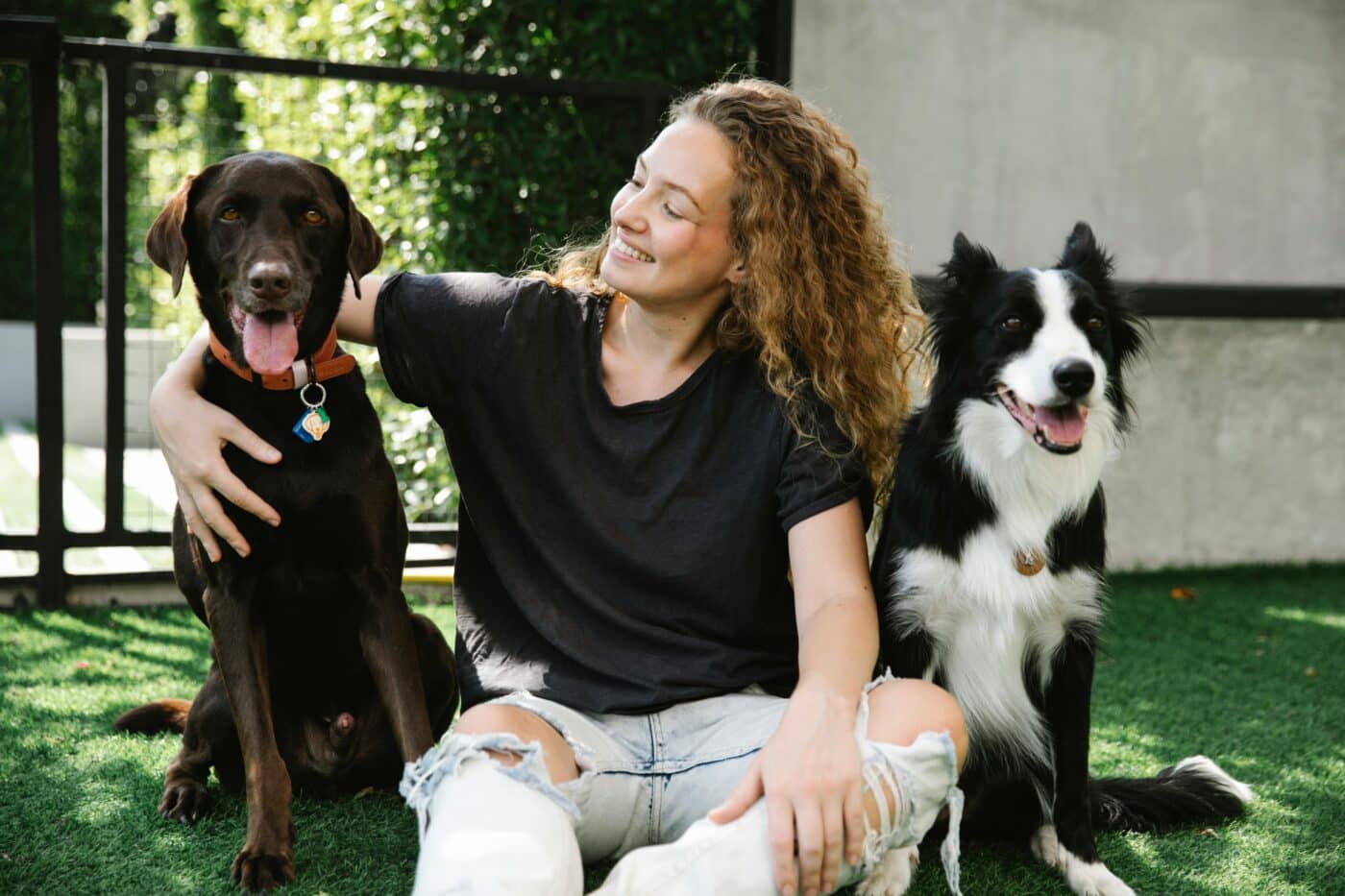 Shutterstock
Shutterstock
Most people think they’re the ones training their dogs, but what if the roles are reversed? Dogs often use subtle tactics to shape our behavior, guiding us to give them what they want without us even realizing it. Whether they’re influencing your routine, coaxing you into giving treats, or subtly steering your decisions, dogs have a way of training their humans. Through persistent habits and clever strategies, your dog might be more in control than you think—mastering the art of training you rather than the other way around.
Using Barking as a Command
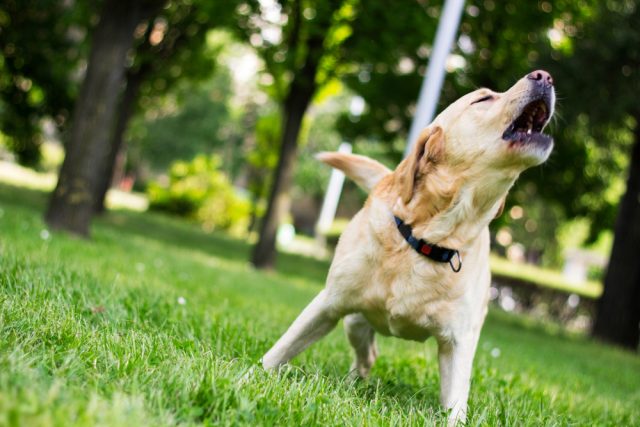 Shutterstock
Shutterstock
One of the most obvious signs your dog is trying to train you is when they use barking to get what they want. For example, if your dog barks to go outside, receive attention, or get food, and you immediately respond, they’ve effectively trained you to react to their barking. This behavior shows that they’ve learned how to use vocal cues to manipulate your actions. Over time, dogs realize that barking gets them what they want, whether it’s a walk, a snack, or your undivided attention.
Bringing You Objects to Demand Playtime
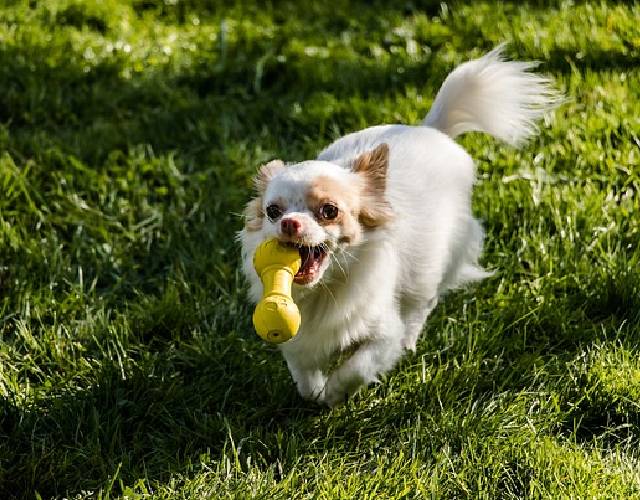 Shutterstock
Shutterstock
Does your dog drop a toy at your feet or bring you an object when they want to play? This is a classic sign of dogs training their humans to engage in playtime on their terms. When you respond by throwing the toy or starting a game, your dog learns they can dictate when playtime starts. While this behavior is often cute and harmless, it shows how your dog can take control of when and how they receive attention.
Waking You Up Early
 Shutterstock
Shutterstock
If your dog consistently wakes you up early—whether by jumping on the bed, nudging you, or barking—they may have successfully trained you to start the day when they do. While dogs thrive on routine, allowing them to dictate when you wake up can disrupt your sleep and give them control over your schedule. This behavior shows how dogs can influence even the most personal aspects of our lives, like when we wake up in the morning.
Using Cuteness as a Tool
 Shutterstock
Shutterstock
Dogs know how to use their cuteness to their advantage, whether it’s tilting their head, wagging their tail, or giving you those irresistible puppy-dog eyes. If you find yourself giving in to their demands just because they look too cute to refuse, they’ve trained you to respond to their charm. This tactic is especially effective when dogs want something like a treat, a belly rub, or extra playtime.
Pawing at You for Attention
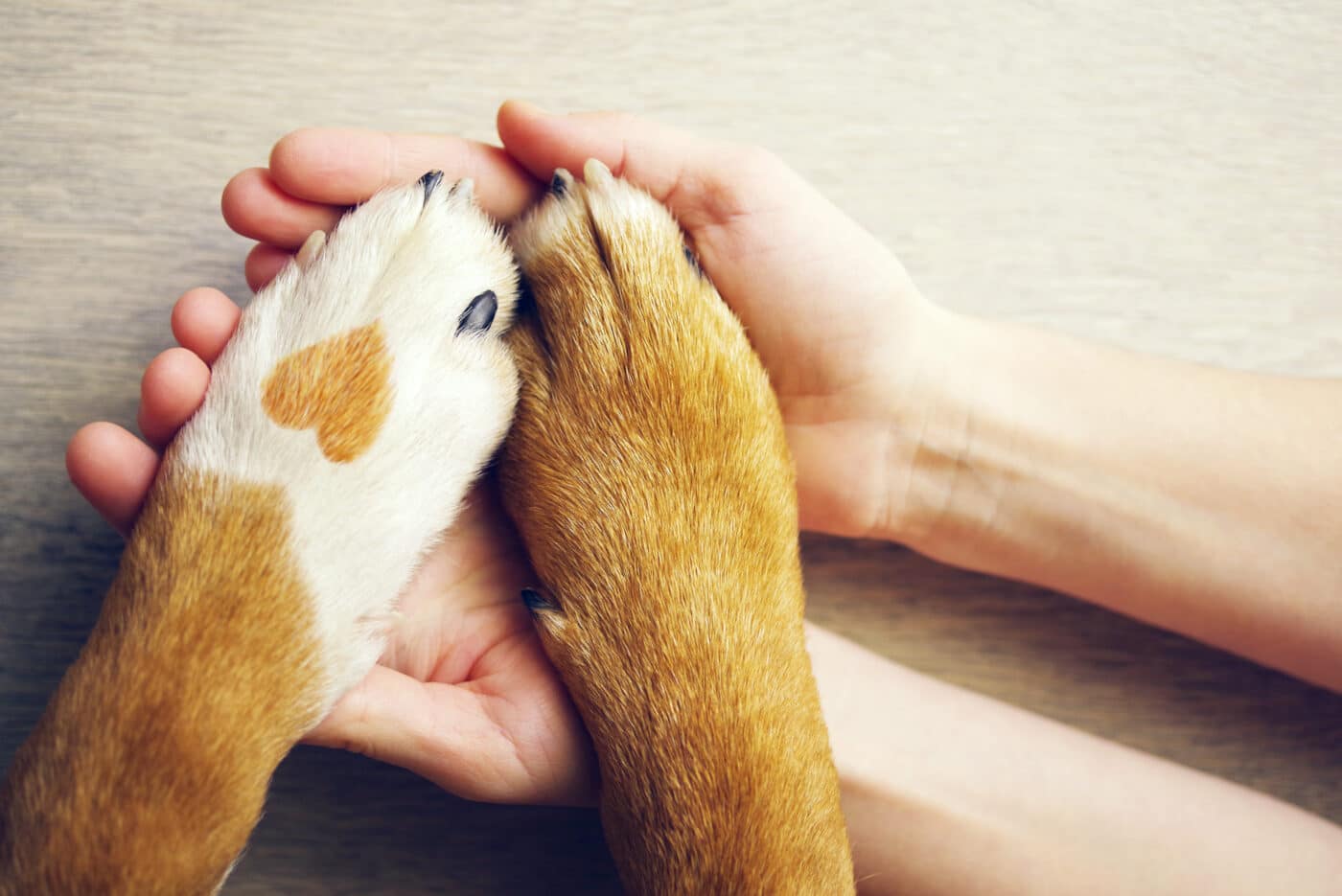 Shutterstock
Shutterstock
Pawing is another way dogs communicate their needs, and it’s often a sign they’re training you to give them attention on demand. If your dog regularly paws at you for affection, food, or play, and you immediately respond, they’ve learned that this behavior works. While pawing can be a gentle and endearing gesture, it also signals that your dog knows how to get what they want from you whenever they feel like it.\
Training You with Treats
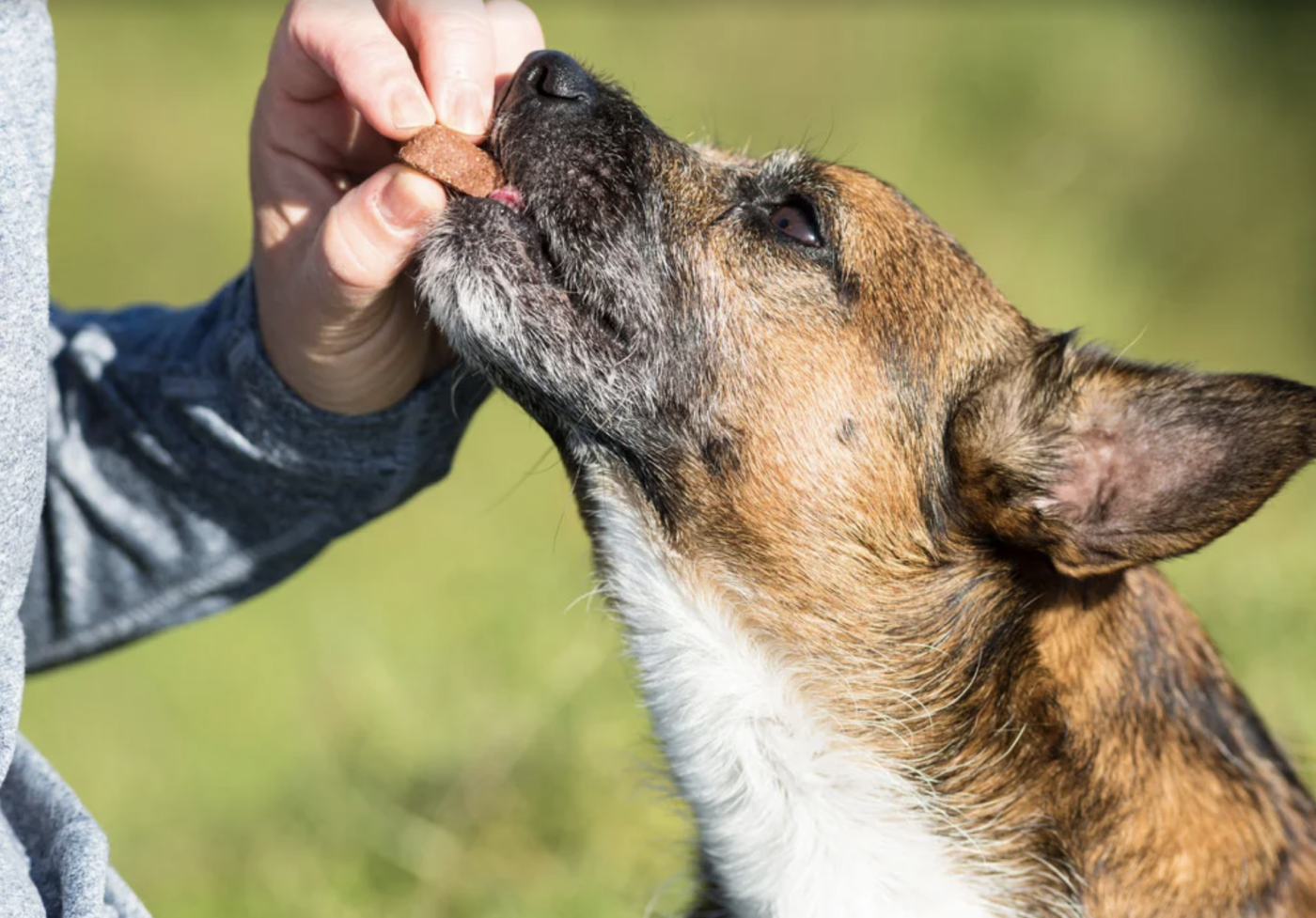 Shutterstock
Shutterstock
Have you ever noticed that your dog only responds to commands when they know there’s a treat involved? This is a common sign that your dog has trained you always to offer a reward for good behavior. While using treats is an effective training tool, dogs who refuse to obey commands without the promise of a snack are showing that they’ve taken control of the situation.
Redirecting You with Distractions
 Shutterstock
Shutterstock
Dogs are masters at creating distractions to get what they want. For example, if your dog barks at the door to make you think someone is there, only to grab food off the counter when you’re distracted, they’re showing just how clever they can be. This behavior is a clear sign that your dog has learned how to manipulate situations to their advantage, training you to respond to their distractions.
Staring You Down for Treats or Food
 Shutterstock
Shutterstock
That intense, unwavering stare dogs give when they want food or treats is often a sign they’ve trained you to respond to their silent demands. If you find yourself reaching for a snack every time your dog gives you that look, you’ve fallen into their training trap. Dogs quickly learn that by staring at you persistently, they can get you to give in to their request without having to beg or bark
Leading the Walks
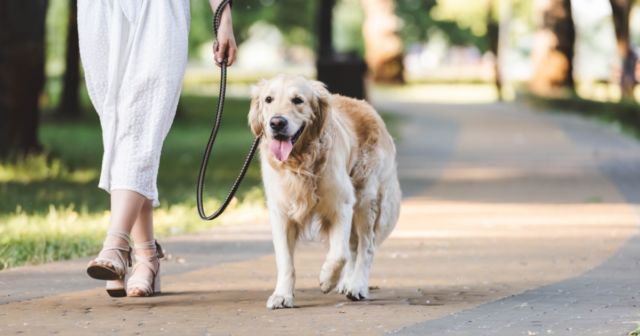 Shutterstock
Shutterstock
If your dog often pulls on the leash, decides the direction, or sets the pace during walks, they’ve successfully trained you to follow their lead. While walks are an important part of their daily routine, allowing your dog to take control can lead to poor leash manners and a lack of respect for your authority. Dogs who lead the walk show that they’ve learned how to manipulate the activity to suit their desires.
Your Dog, The Trainer
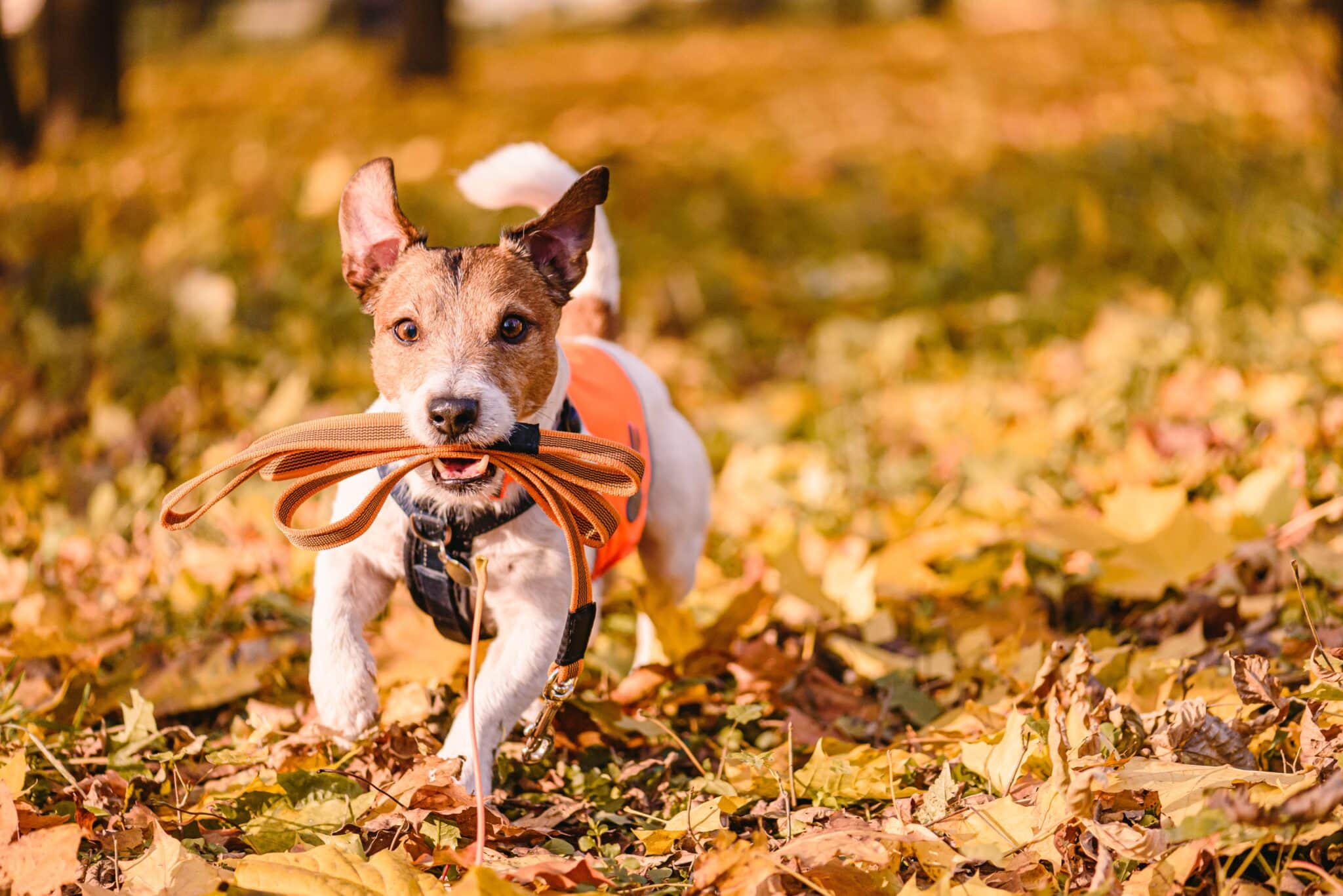 Shutterstock
Shutterstock
Dogs are brilliant and often manage to train their humans through subtle tactics. Whether it’s using their charm, creating distractions, or influencing your daily routines, they have a knack for guiding your actions without you realizing it. By recognizing these behaviors, you can set boundaries and maintain a healthy balance in your relationship. This allows you to remain the trainer while still giving your dog the attention and love they deserve. Understanding these signs helps create a more harmonious, respectful bond between you and your dog.
 Toledo, United States.
Toledo, United States.